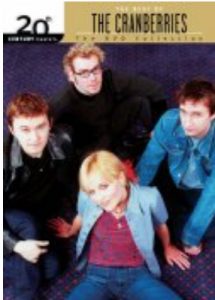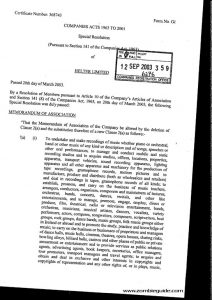Yesterday’s Sunday Times (UK) published a lengthy interview with Noel Hogan about his previous home at No. 1 Clogrennan Terrace in Limerick, the Victorian house where he says he wrote the majority of Bury the Hatchet.
The Sunday Times – Property
July 24, 2005
Time and Place: Dreams of being at No 1
NOEL HOGAN of the Cranberries turned an end-of-terrace Victorian house into a happy family home
No 1 Clogrennan Terrace in Limerick city was my first proper home. Until then, I had lived with my parents. Because I was on tour so much of the time with the Cranberries, it had never made sense to move out. When I took the plunge, it was 1996 and I was 23.
I knew the road well, having passed the terrace of houses all through my teens. I always thought it would be a great place to live. The house was an old red-brick Victorian end-of-terrace, right in the middle of town. It was 130 years old and had huge bay windows and oodles of space.
I shared with Catherine Nash, then my girlfriend and now my wife. There were four bedrooms and a converted attic, accessed by a spiral staircase. We got rid of that very early on and continued the main staircase up into the third floor, which lent the house a better sense of continuity. I used the attic room as a home cinema.
We invested in a big couch that could seat three or four, as well as a chair just for me. We would have people over to watch films and occasionally even did popcorn.
During our first two years living there, it was a party house. As we were doing it up, we didn’t mind making a mess. We invited 20 to the housewarming and 70 turned up. Next morning it looked like a bomb had gone off.
The bathroom was tiny so we decided to knock through into one of the adjoining bedrooms and expand the bathroom into a great big statement room.
Downstairs, there were two reception rooms, a kitchen and utility room. The front room was home to a beautiful imposing, black, grey and white marble fireplace.
The former residents, the Clancy family, who owned the first cinema in Limerick, had taken it with them when the picturehouse closed and installed it in the house. For me, it was the biggest selling point of No 1.
Double doors divided the front and back rooms. I used the back room as a CD library. I did most of the Bury The Hatchet album in the front room. During the day I would camp on the couch, writing everything into a notebook on the coffee table with the television on in the background.
At the back of the house was a big kitchen built from recycled red brick with wooden rafters. The brick was salvaged from the old Milk Market, also in the city.
Generally I was left alone during my time there but occasionally fans would knock on the door to say hello. More often they would leave flowers on the doorstep. One day I opened the door to a guy asking me if one of the Cranberries lived around here. I sent him off down the road to ask one of my neighbours and he never came back.
Thankfully, the house needed little refurbishment when we bought it. We had it rewired and had an external wall repointed but it was in fine condition for its age.
When we were decorating, I would buy bits and pieces while away on tour. Each time I returned home, I had to buy an extra suitcase to carry all the purchases. I must have had 40 or 50 suitcases, which ended up in the garden shed stacked floor to ceiling.
Asia and North America were great for furniture. One of my best finds was a Mexican sideboard I picked up in Vancouver and had shipped home. It stood in the kitchen. Another memorable piece was a stone kitchen table that’s now in storage because it doesn’t suit our new home. We used up every available square inch and it began to resemble a furniture shop.
When I decided to sell, I had to find a home for all the furniture. We sold up in 2001, when our eldest daughter Rachel had just turned one. We stayed in the area; in fact, I don’t think I’ll ever leave.
Hogan’s Mono Band, who have just released their self-titled debut album, play the Hard Working Class Heroes festival in Temple Bar in August, www.hwch.net.
Interview by Alanna Gallagher






